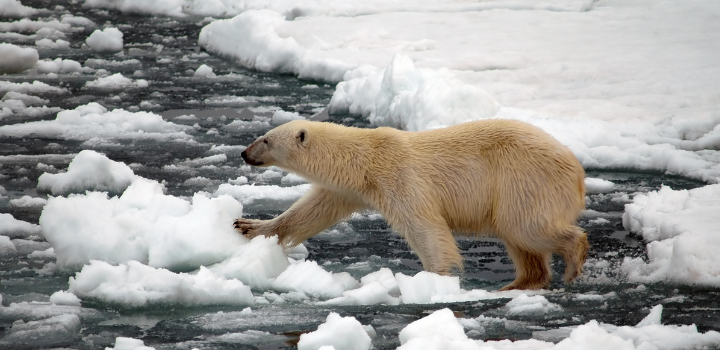New discovery reveals unexpected ocean algae help cool the Earth
By: Communications

A common type of ocean algae plays a significant role in producing a massively abundant compound that helps cool the Earth’s climate, new research has discovered.
The findings of the study by the University of East Anglia (UEA) and Ocean University of China (OUC) could change our understanding of how these tiny marine organisms impact our planet.
The team identified the bloom-forming Pelagophyceae algae as potentially abundant and important producers of a compound called dimethylsulfoniopropionate, or DMSP.
Co-lead author Professor Jonathan Todd, of UEA’s School of Biological Sciences, said: “The Pelagophyceae are amongst the most abundant algae on Earth, yet they were not previously known as important producers of DMSP.
“This discovery is exciting because DMSP is an abundant antistress compound, food source for other microorganisms and major source of climate-cooling gases.”
Dr Jinyan Wang, OUC/UEA PhD student and first author, said: “Understanding the role of Pelagophyceae in DMSP production means we need to rethink how much of this compound is being produced and how it impacts our climate."
Every year, billions of tonnes of DMSP are produced in the Earth's oceans by marine microorganisms, helping them to survive by protecting against various stresses like changes in salinity, cold, high pressure, and oxidative stress.
Importantly, DMSP is the main source of a climate active gas called dimethylsulfide (DMS), which is known as the smell of the seaside.
This study suggests that DMSP production, and consequently DMS release, is likely higher than previously predicted and emphasises the key role of microbes in regulating global climate.
DMS also acts as a signalling molecule, guiding marine organisms to their food and deterring predators.
When DMS is released into the atmosphere, DMS oxidation products help form clouds which reflect sunlight away from the Earth, effectively cooling the planet.
This natural process is essential for regulating the Earth’s climate and is also hugely important for the global sulfur cycle, representing the main route by which sulfur from the oceans is returned to land.
UEA and OUC established the Sino-UK Joint Research Centre to promote cutting-edge research and teaching in marine and ocean science.
UEA’s Dr Andrew Curson was a key member of the team that identified the novel enzymes responsible for the synthesis of DMSP in diverse bacteria, photosynthetic cyanobacteria and algae.
Dr Curson said: “The identity of these enzymes allowed our team to identify Pelagophyceae as potentially abundant and important DMSP producers.”
Co-lead author Professor Xiao-Hua Zhang, of OUC’s College of Marine Life Science, said: “By identifying the enzymes involved in DMSP production, scientists can better understand and predict the behaviour of these ecosystem-disruptive, brown-tide-forming algae and their impact on global climate change.
“This study has also raised questions about other unidentified versions of the enzymes needed to make DMSP, or entirely different pathways for making it that are currently unknown.”
The researchers say further study of Pelagophyceae algae in their natural environment is needed, as well as more detailed studies on other marine organisms.
Better measurements of environmental DMSP levels, production and breakdown rates, and the abundance of the enzymes involved in making DMSP are also critical to further advance the field.
The research was a collaboration between UEA and OUC, with contributions from Qingdao Agricultural University, the University of Porto, Shandong University and the Laoshan Laboratory in Qingdao, China.
The work was funded by the UK Biotechnology and Biological Sciences Research Council (BBSRC), the BBSRC Norwich Research Park Doctoral Training Partnership programme, the UK Natural Environment Research Council, the Leverhulme Trust, the National Natural Science Foundation of China, the Marine S&T Fund of Shandong Province for Laoshan Laboratory, the Chinese Scholarship Council, the Fundamental Research Funds for the Central Universities, the European Union’s Horizon 2020 research and innovation programme and the Fundação para a Ciência e a Tecnologia, Portugal.
'Alternative dimethylsulfoniopropionate biosynthesis enzymes in diverse and abundant microorganisms’ is published in Nature Microbiology.
Related Articles

Polar bears may be adapting to survive warmer climates, says study
New research by scientists at the University of East Anglia (UEA) reveals a link between rising temperatures and changes in polar bear DNA, which may be helping them adapt and survive in increasingly challenging environments.
Read more
2025 – a year in research
The past twelve months have seen UEA researchers break new ground on everything from Magna Carta to the mating habits of jaguars in the Amazon. Join us as we take a look back at just some of 2025’s incredible stories, discoveries and expert insights.
Read more
Ancient wolves on remote Baltic Sea island reveal link to prehistoric humans
Scientists have found wolf remains, thousands of years old, on a small, isolated island in the Baltic Sea – a place where the animals could only have been brought by humans.
Read more